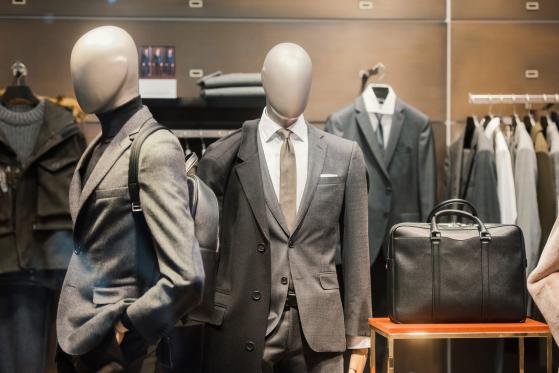Hugo Boss shares experienced a significant drop, plunging as much as 10% on Tuesday following a revision in the company’s sales outlook for the full year.
The German luxury fashion house adjusted its forecast to a range of up to €4.35 billion ($4.73 billion), down from the previous estimate of up to €4.45 billion.
The company attributed this revision to ongoing macroeconomic and geopolitical challenges, particularly in key markets such as China and the UK
Sales and profit decline in Q2 as challenges persist
The company reported that its group sales fell by 1% on a preliminary basis in the second quarter, amounting to €1.02 billion.
This decline was primarily driven by weaker performance in Asia and Europe. Operating profit for the quarter also saw a significant year-on-year decrease of 42%, dropping to €70 million.
This slump reflects not only softer sales trends but also the strategic investments made into the business.
“We are operating in a period of significant global macro uncertainty, which also affected our performance in the second quarter,” CEO Daniel Grieder said in a statement.
“Although the timing of any macro recovery remains uncertain, our strategy of consistently investing in our strong brands, BOSS and HUGO, gives us confidence in our ability to continue driving above-trend growth and capturing further market share.”
Broader impact on the luxury sector
Hugo Boss is not alone in facing these challenges. Other luxury brands, such as Burberry and LVMH (EPA:LVMH), have also reported slowdowns in sales.
Burberry’s shares fell 16% after issuing a profit warning and making significant changes to its leadership and dividend policy.
Similarly, Richemont (LON:0QMU) reported only 1% sales growth in constant exchange rates in the first quarter, with Chinese sales significantly impacting their results.
Hugo Boss has reported a mixed performance across its various sales channels, reflecting broader economic trends and shifting consumer behaviors. The company experienced a 5% increase in brick-and-mortar wholesale sales, demonstrating continued strength in traditional retail outlets.
However, revenues for the group’s digital business declined by 4% compared to the previous year. Additionally, brick-and-mortar retail saw a slight revenue dip of 2%, attributed to decreased store traffic.
The overall softer consumer sentiment impacted the company’s various brands differently. On a currency-adjusted basis, Boss menswear revenues were 2% below the prior year, while Boss womenswear sales increased by 2%.
The Hugo brand performed particularly well, with a 3% increase in currency-adjusted sales, driven by the successful launch of its new denim-focused line, Hugo Blue.
Operating profit (EBIT) for the second quarter was €70 million on a preliminary basis, a significant decrease from €121 million in Q2 FY23. Despite the drop in operating profit, Hugo Boss achieved a notable improvement in gross margin, which increased by 50 basis points to 62.9% from 62.3% in the same period last year.
Additionally, the company reported positive developments in inventory management, with inventory levels down 7% year-over-year on a currency-adjusted basis. This improvement indicates a more efficient management of stock and better alignment with current market demands.
This article first appeared on Invezz.com
